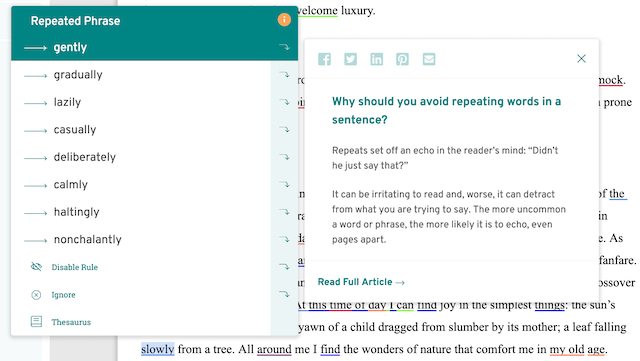
When I wrote the first draft of my novel, I hammered it out from beginning to end in a little under three months.
The story was disorganized. It went off on tangents. It had plot holes that wouldn’t end. I somewhat knew the characters but didn’t fully understand why some acted the way they did. And on top of all of that, some parts were just badly written, like really, really badly written. Even so, this wayward first draft was mine, and I had finished it. I was so proud of it, I even went down to the local UPS Store and had several spiral-bound copies printed… just to share with close friends and family, of course (and thank God).
Hindsight being 20/20, I cringe at the thought of someone reading my first draft. Eight (yes, eight) years have gone by since those three months of frenzied writing, and in that time, I’ve realized that what I thought was one book will actually be three. My plot has become more complex, my characters are coming into their own, and I’m finding the story more and more with each round of revisions. And many revisions there have been.
The Yuck Factor
Let’s face it. Most first drafts are messy, especially those of the NaNoWriMo, let’s-crank-this-story-out-in-the-fastest-time variety. Their scenes and plot points pile up, one on top of another, often because you’re so excited about where the story is going that you can’t wait to get it all down as quickly as possible (which isn’t a bad thing, by the way). But unless you knew where you were heading before you even started, you may find that your story is spilling over with characterizations, dialogue, and descriptions that, given the chance, would smear a thick, black, sticky goo all over your keyboard or notebook. Yuck.
It’s no wonder that many a first draft finds itself shoved into a desk drawer or deleted altogether from virtual existence. Yet, before you pass your first draft off as complete and utter rubbish, I encourage you to take a moment to pause and consider your piles of wordy trash, no matter how disgusting and revolting those piles may seem.
Sorting Your Writing
If you recycle, you’re likely familiar with the necessity of sorting your garbage. Paper goes into one bin. Plastics and glass into another. Maybe you even have a compost pile in your backyard where you toss carrot tops, potato peelings, and withered lettuce leaves. An old neighbor of mine, a master gardener, had – I kid you not – bins of dirt with nightcrawlers (yes, creepy, crawly worms) stashed in a closet in her house, composting away, just waiting for her to spread its richness around her flower beds. I’m not that adventurous, nor am I the poster-child of recycling. I sort this and that, but something that I could set aside inevitably gets tossed in with the trash and finds its way to the dumpster. (Sorry. I do try my best.)
With writing, I’m more mindful. I understand that I have to allow my words to pile up on the page. Yes, I might initially want to crinkle my nose when I see that what I’ve just spent the last fifteen minutes or two hours on stinks, but I know that if I don’t do that, that time will have passed and I’ll have hardly written a thing.
No first draft will be perfect. Ever.
We all know that we have to start somewhere. We have to get that first draft written. And that’s why reminding ourselves not to be too hasty to scrap a scene or press that unforgiving delete button is so important. We must allow our first drafts to be ghastly, disgusting, horrifying pages of yuck. Only then can we begin sorting through its garbage, and, yes, garbage there will be.
So, where to start?

Assessing Your First Draft
First, separate the recyclables. Picture the pickle jars and milk jugs you’ve washed out and the folded newspapers and cardboard boxes that are ready to go to the bin.
These are the pages of your draft that are more or less clean. Their scenes are on point, the dialogue and descriptions are refined, and your characters come across as they should. Keep in mind that these pages will need a final polish or two. Proofreading for grammar is a must, obviously, but also consider style. Use ProWritingAid’s Sticky Sentence and Sentence Length Reports to tighten up your wording and add sentence variety, or go through the Consistency Check to ensure you’re maintaining spelling, capitalization, and punctuation. Once you’ve taken these steps, these pages will be keepers, and you should hold on to them all the way to the final manuscript.
Editing Your Writing
Next, consider the washables. Picture the unwashed tin cans and the bottles with a sticky residue on their outsides.
In writing, these are the pages that will show their worth if given the chance. Their concepts might be there, but they need some work. Maybe you need to improve the narrative arc or develop your characters further so that what your protagonist is doing in the first chapter connects with why he or she is acting a certain way a few chapters later. Or perhaps the story is solid but you need to finesse the dialogue, remove useless redundancies and clichés, and improve pacing and overall readability.
Several of ProWritingAid’s tools can assist you here, too. The Dialogue Tags Check, for instance, can help you see where tags aren’t necessary, and the Redundancies Report and Repeats Check can guide you toward removing repetition or adding more creativity to your word choices.
Give these pages the time they need. At first, they may not show their potential, but a good revision will clean them right up.

Revising Your Scenes
Now, you have to get down and dirty. You have to pick out what can be composted. Yes, it’s yucky, but even apple cores and banana peels have their purpose.
In writers’ speak, these are the details that aren’t showing any value at the moment. Perhaps you initially thought a particular scene would work but now it just seems forced or cobbled together. Set it aside so it can stew and smolder in the back of your mind. It might come in handy when you least expect it. For instance, maybe you’re nearing the end and you realize that you need your protagonist and antagonist to confront one another one final time. That useless scene you pulled from your draft earlier may now be ready to blossom and grow into something lovely. You’ll never know if you don’t give it a chance to decompose and become something better.
Take Out the Trash
What does that leave? Well, the rest. It might be a scene or two; it might be an entire chapter. It might be half the draft. Toss it. Delete it. Let it go (and sing Elsa’s song as you do). This part you don’t want; if left, it will only continue to contaminate all your good writing with mire and muck.
Once you’ve cleared out all that bad stuff, you’ll see more clearly what remains. That’s when you can move on to the next draft and the next, adding more details, changing scenes or moving plot points from here to there. Your manuscript might require one revision, or it might need more (this coming from someone who is on the sixth – or is it seventh or eighth? – revision). Each time you finish a revision, sort the garbage. Don’t skip this step. Sorting and re-sorting (i.e. assessing and revising) are what will turn your yucky first draft into a manuscript worth keeping.


